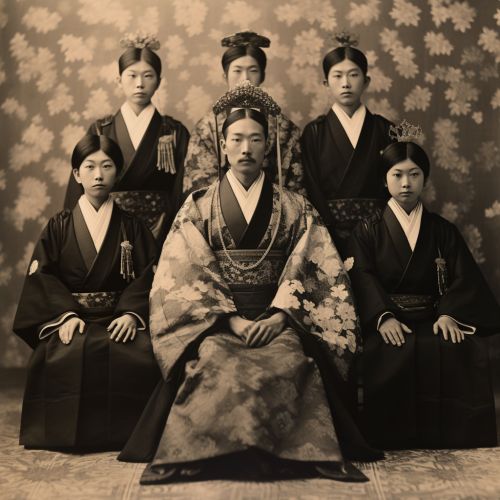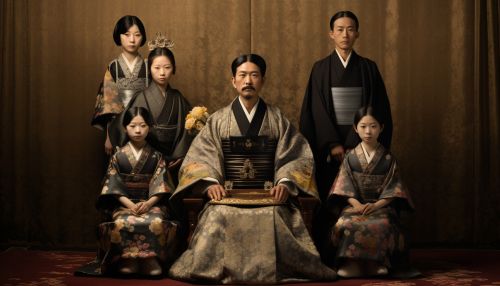Empire of Japan
Origins and Unification
The Empire of Japan was a historical nation-state that existed from the Meiji Restoration in 1868 until the enactment of the post-World War II constitution in 1947. The Empire of Japan was characterized by a rapid industrialization and militarization under the slogan of Fukoku Kyōhei (富国強兵), "Enrich the Country, Strengthen the Armed Forces", and Shokusan Kōgyō (殖産興業), "Promotion of Industry".


Meiji Era (1868–1912)
The Meiji Era marked the start of the Empire of Japan, where the country underwent significant changes politically and socially. The feudal system was abolished, and numerous Western institutions were adopted, including a Western-style government, a judicial system, and a constitution, the Meiji Constitution.
Taishō Era (1912–1926)
The Taishō Era was characterized by Japan's democratic movement, which was not fully realized due to the instability of the Taishō government. Despite the political instability, this era was marked by Japan's cultural expansion and increased international interaction.
Shōwa Era (1926–1989)
The Shōwa Era was the longest reign of any Japanese emperor. During this era, Japan experienced significant changes, including militarization, World War II, and post-war reconstruction. The Shōwa Era ended with the death of Emperor Hirohito in 1989.
Government and Politics
The government of the Empire of Japan was a constitutional monarchy where the power of the Emperor was limited and was vested primarily in the Imperial Diet. The government was divided into three branches: the Executive branch, the Legislative branch, and the Judicial branch.
Economy
The economy of the Empire of Japan was a complex and rapidly changing economic system that was characterized by its high level of industrialization, modern transportation systems, banking and commerce, and a strong trend of protectionism.
Military
The military of the Empire of Japan was divided into two main branches: the Imperial Japanese Army and the Imperial Japanese Navy. The military was heavily influenced by Western military practices and was known for its discipline and organization.
Culture
The culture of the Empire of Japan was a rich blend of Asian influences and Western imported styles. The culture was characterized by its unique arts, literature, and philosophy.
End of the Empire
The end of the Empire of Japan came after the country's defeat in World War II. The post-war constitution of 1947, also known as the "Postwar Constitution" or the "Constitution of Japan", was enacted, which transformed Japan into a constitutional monarchy with a parliamentary government.
